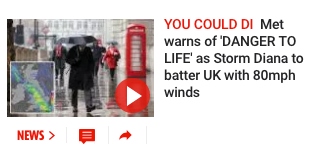Newspapers
differences between a broadsheet newspaper and tabloid newspaper:
Broadsheets =
- larger
- focus on more serious topics
- aimed at more higher class people
- quality press
- more sophisticated and formal language used
- plainer layout - not much colour and smaller type face
- subtle pictures
- longer articles that are very detailed
- serious headlines
- more focus on politics, international news and reviews of high culture e.g opera
- more writing
- middle class target audience
- make use of a lot of assumed knowledge
Tabloid =
- contain gossip - may use stories about TV shows
- aimed at lower social groups
- Language is informal and colloquial (writing in a chatty way)
- shorter articles more pictures
- less in-depth reporting
- puns and jokes in headlines
- more focus on human interest stories e.g. celebrity gossip
- use of gimmicks e.g. online surveys, bingo, free travel tickets to attract reader
- bigger type-face and more pictures
- provocative news stories and sensationalist.
- popular press
Polysemy = many interpretations - not everything has a single meaning. One of the best ways of applying media theory is through suggesting two or more possible meanings - in creating a newspaper, producers typically try to avoid polysemic reading - the process of anchoring.
Anchorage - the fixing of a particular meaning to a media text, often through the use of captions

- The sun are right winged so they are trying to make Jeremy Corbyn look like an idiot
- childish humour
- by calling him "Jezza" = colloquial language and is assuming you know who he is and makes him seem childish.
- Mise-en-scene of the bin - makes him look stupid, dirty, rubbish
- pun in the headline - Corbyn and Cor-bin
- they're implying he is rubbish
- list of negative traits = anchorage and manipulations so the Sun's readers think negatively of him and don't vote for him
- Over-exaggerated and sensationalised to show how bad they think he is.
- by calling him a "terrorists friend" it is incredibly off putting however they don't go into any detail as to what happened making him look like the enemy.
- bullet point list of negative attributes - bullet points stand out more and emphasise how many terrible things there are about Jeremy - aiming at working class as they dont have to read as much
- terms refer to war
- on top of the bin = fish skeletons and flies flying around to show how gross he is
- Theresa May writes for the Sun
- left wing
- lexis of "got" suggests they are the only hope for Britain and it can't be any other party
- forceful and powerful words "crippling" "save" and "need" = anchorage - they want Jeremy Corbyn and the labour party to come across positively so that they are voted.
- "Labour" is the biggest word on the page - emphasising it's importance and need to be seen.
- large clear type-face
- bold writing of "it's got to be labour"
- picture of Jeremy Corbyn with mise-en-scene of his thumbs up which symbolises positivity.
- they are constructing a left wing audience.
Bias = inclination or prejudice for or against one person or group, especially in a way considered to be unfair - favouring 1 viewpoint over another.
Agenda = underlying intentions of a group - what they actually want to do.
The sun:

- pick up on these people having a lot of money yet also have benefits - clear to see the Sun are angry about this.

- the sun sensationalised - alarmists and over the top.
Guardian = more focussed on political stories than the sun .


Broadsheets =
- larger
- focus on more serious topics
- aimed at more higher class people
- quality press
- more sophisticated and formal language used
- plainer layout - not much colour and smaller type face
- subtle pictures
- longer articles that are very detailed
- serious headlines
- more focus on politics, international news and reviews of high culture e.g opera
- more writing
- middle class target audience
- make use of a lot of assumed knowledge
Tabloid =
- contain gossip - may use stories about TV shows
- aimed at lower social groups
- Language is informal and colloquial (writing in a chatty way)
- shorter articles more pictures
- less in-depth reporting
- puns and jokes in headlines
- more focus on human interest stories e.g. celebrity gossip
- use of gimmicks e.g. online surveys, bingo, free travel tickets to attract reader
- bigger type-face and more pictures
- provocative news stories and sensationalist.
- popular press
Polysemy = many interpretations - not everything has a single meaning. One of the best ways of applying media theory is through suggesting two or more possible meanings - in creating a newspaper, producers typically try to avoid polysemic reading - the process of anchoring.
Anchorage - the fixing of a particular meaning to a media text, often through the use of captions

- The sun are right winged so they are trying to make Jeremy Corbyn look like an idiot
- childish humour
- by calling him "Jezza" = colloquial language and is assuming you know who he is and makes him seem childish.
- Mise-en-scene of the bin - makes him look stupid, dirty, rubbish
- pun in the headline - Corbyn and Cor-bin
- they're implying he is rubbish
- list of negative traits = anchorage and manipulations so the Sun's readers think negatively of him and don't vote for him
- Over-exaggerated and sensationalised to show how bad they think he is.
- by calling him a "terrorists friend" it is incredibly off putting however they don't go into any detail as to what happened making him look like the enemy.
- bullet point list of negative attributes - bullet points stand out more and emphasise how many terrible things there are about Jeremy - aiming at working class as they dont have to read as much
- terms refer to war
- on top of the bin = fish skeletons and flies flying around to show how gross he is
- Theresa May writes for the Sun
- left wing
- lexis of "got" suggests they are the only hope for Britain and it can't be any other party
- forceful and powerful words "crippling" "save" and "need" = anchorage - they want Jeremy Corbyn and the labour party to come across positively so that they are voted.
- "Labour" is the biggest word on the page - emphasising it's importance and need to be seen.
- large clear type-face
- bold writing of "it's got to be labour"
- picture of Jeremy Corbyn with mise-en-scene of his thumbs up which symbolises positivity.
- they are constructing a left wing audience.
Bias = inclination or prejudice for or against one person or group, especially in a way considered to be unfair - favouring 1 viewpoint over another.
Agenda = underlying intentions of a group - what they actually want to do.
The sun:

- sun have "football" as second content tab
- pick up on these people having a lot of money yet also have benefits - clear to see the Sun are angry about this.

- the sun sensationalised - alarmists and over the top.
Guardian = more focussed on political stories than the sun .




Comments
Post a Comment